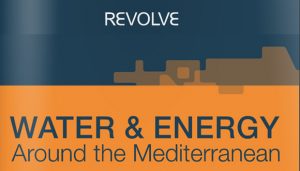
Citizens move to adapt the Tordera and Serpis river basins to the impacts of global change
A new project to adapt the River Tordera (Catalonia) and the River Serpis (Valencia) to the effects of climate change has begun. This will involve

A new project to adapt the River Tordera (Catalonia) and the River Serpis (Valencia) to the effects of climate change has begun. This will involve

The manual, in which the CREAF researchers Anabel Sánchez and Annelies Broekman have participated, summarizes the stages of the BeWater project and the lessons learned

On Tuesday 24 January, the final local event of the BeWater project, a European project coordinated by CREAF was celebrated in Sant Celoni (Vallès Oriental).

Last November, two members of CREAF’s staff attended a workshop organized by the European Commission which was also attended by the Network of Centres of

A diverse group of stakeholders took part in a dynamic workshop to evaluate the best options to manage water in the Tordera River Basin in

The digital magazine Revolve Water makes a description of the physical, environmental and socio-economic characteristics of the four river basins an gives an overview of the

This magazine about sustainable issues explain the project coordinated by CREAF in a general report. Four other articles will explain the four case studies in